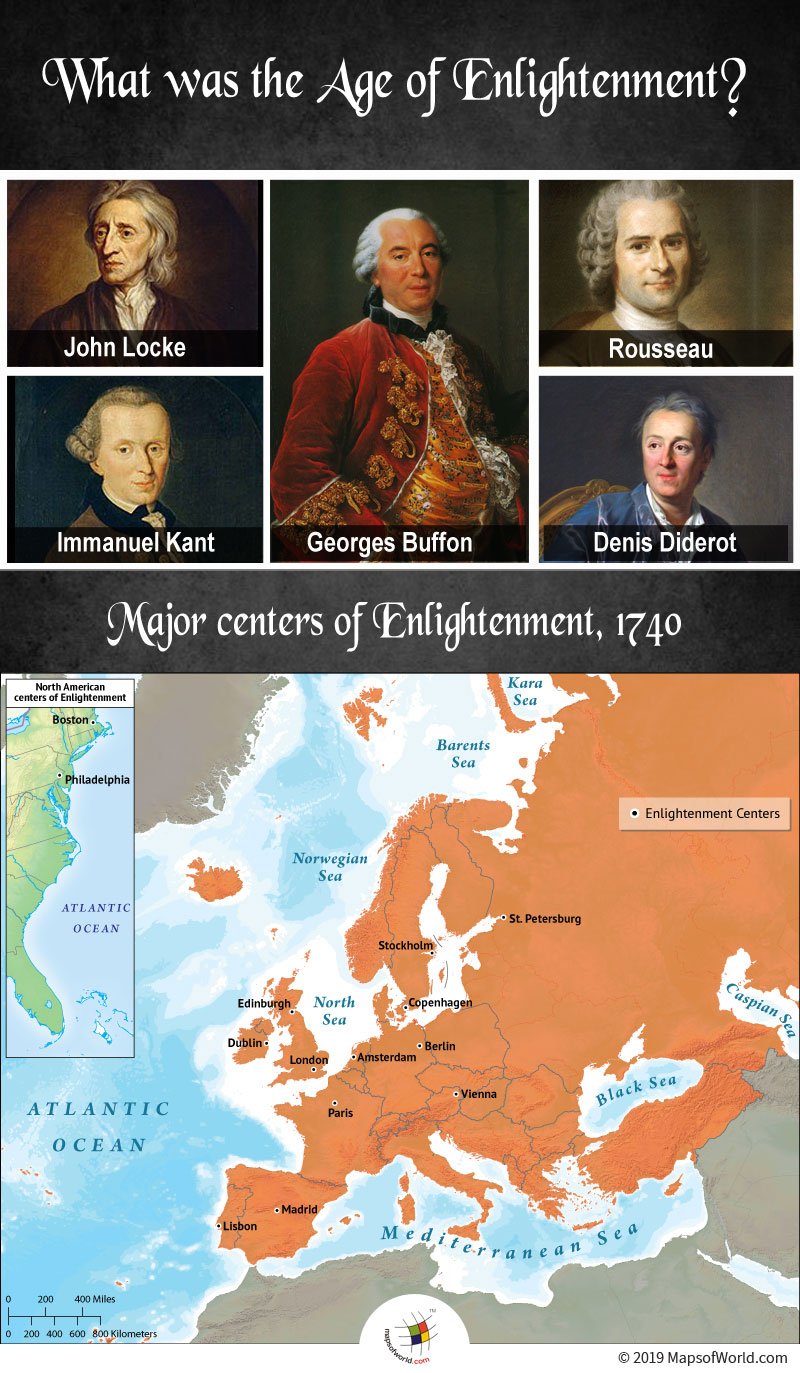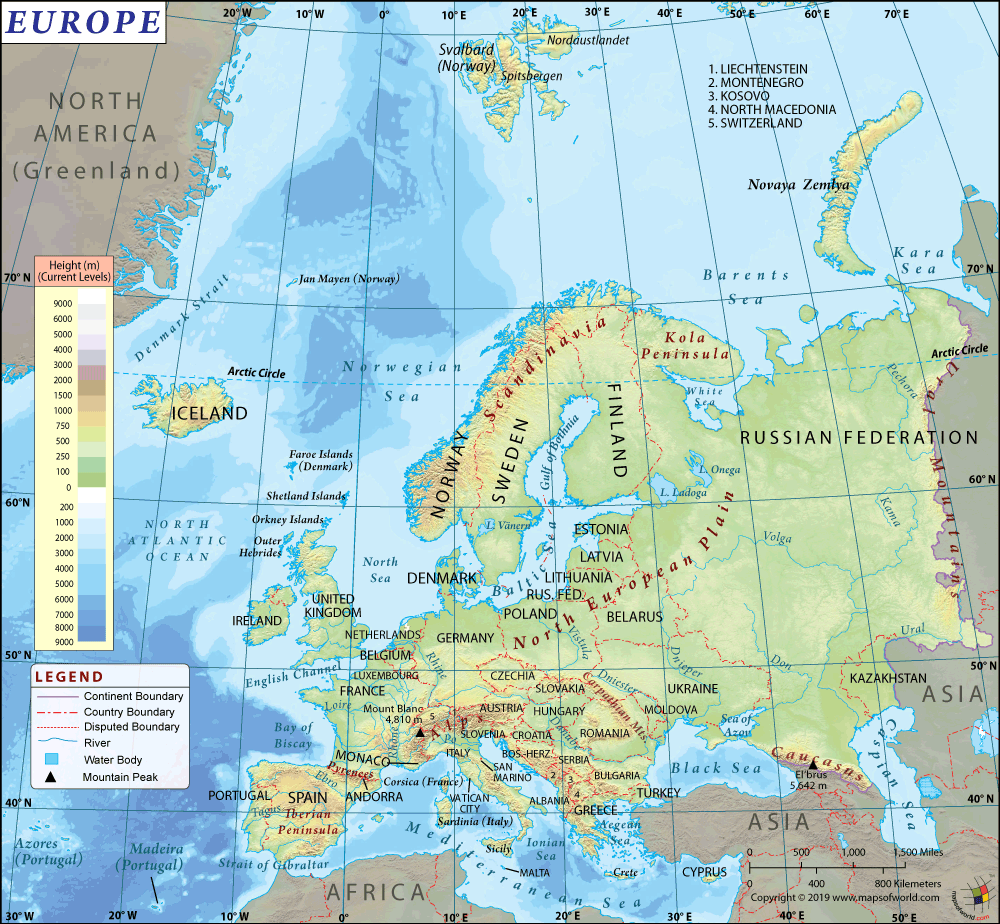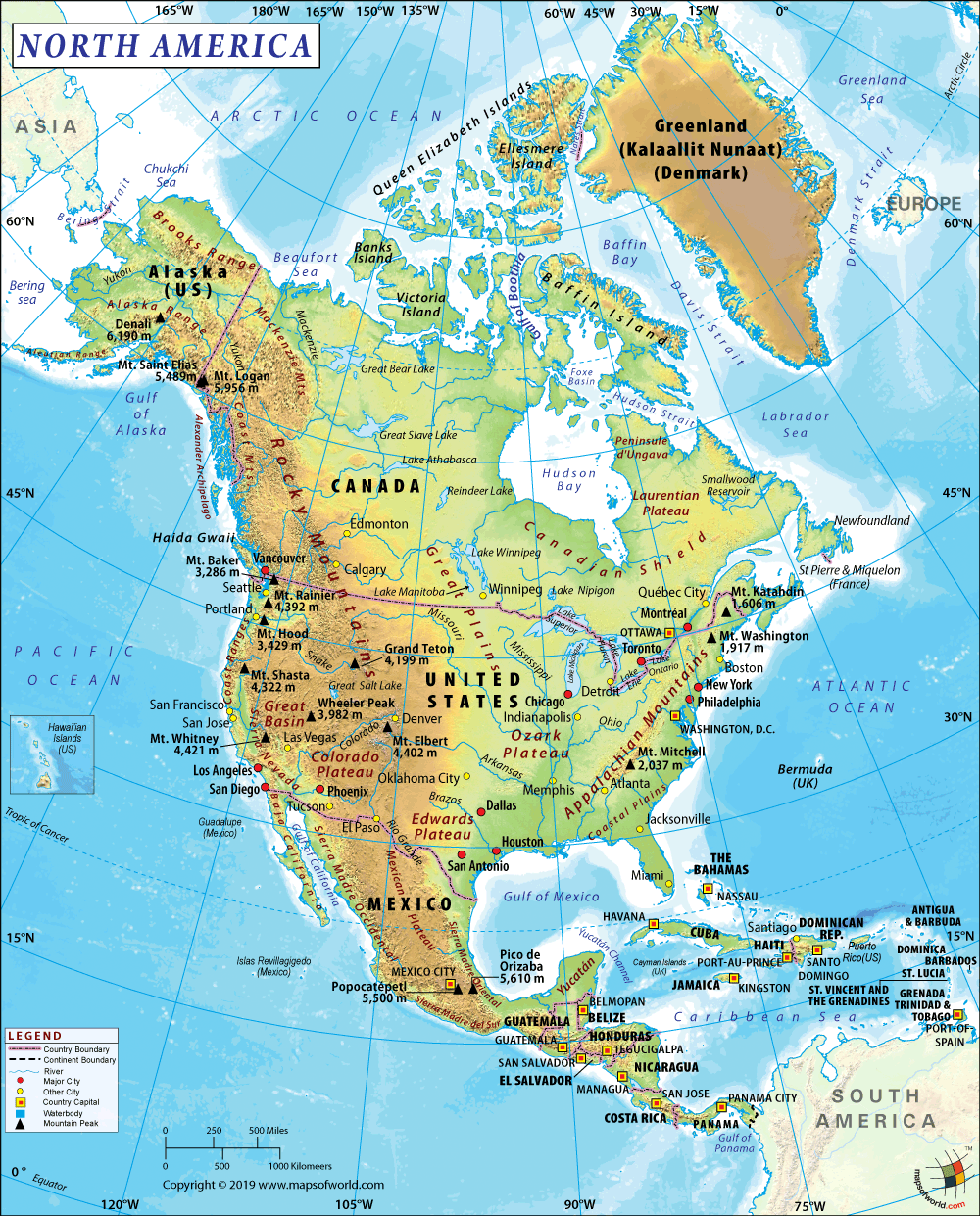What was the Age of Enlightenment?

The Age of American Enlightenment, also known as the Age of Reason, was an intellectual and philosophical movement from the late 17th to the early 19th century. The movement kickstarted from Europe and later reached North America between 1685-1815. It emphasized reason over superstition, reductionism, and scientific reasoning over blind faith. Check How did the Enlightenment Influence the American Revolution.
Why it is also called the Age of Reason?
The Age of Enlightenment represented a genesis in the way human beings viewed themselves. After leaving behind mysticism, religion and superstition, people now indulged in the pursuit of knowledge. From here began the striving for individual happiness, liberty and reason. People started exploring ideas and pondered over scientific thoughts. Free thinking filled the horizon, as some people lost the fear of God and looked for reason and rationality. Therefore, this period was also known as the Age of Reason.
The protagonists of the Enlightenment Age used the power of press to spread new ideas regarding knowledge, individual liberty and religious tolerance. They divorced themselves from the mysticism and superstitions of the Middle Ages and now believed in reason and the concept of natural law, as against miracles. The Enlightenment Movement instigated revolutionary developments in philosophy, art and politics, and was considered a major turning point in the Western Civilization. This movement also replaced the Age of Darkness.
History of the Movement
There was no single unified Enlightenment sweeping the globe. Rather it occurred at different times in various parts of the world. The most apparent cause of the Enlightenment was the ‘Thirty Years War’ that took place in 1618-1648 in Central Europe. This horribly destructive war centered around religious conflicts and brought enormous social disruption. It forced the authors to go against the traditions and opt for better solutions. It was at this time that the writers, artists, poets and philosophers started focusing on culture and philosophies instead of God. They started to question and criticize the concepts of war and nationalism. Finally, after reaching the peak of mistreatment and torture at the hands of the monarchies and the church, the average citizens too finally decided to voice their opinions and indulge in rational questioning.
The period of Enlightenment can be broadly divided into 3 parts:
The Early Enlightenment Period ( 1685-1730)
The roots of the Enlightenment Period can be traced back to the 1680’s England, when books like Principia Mathematica (1686) by Issac Newton and Essay Concerning Human Understanding (1689) by John Locke were being published. These provided a major momentum to the movement.
The Higher Enlightenment Period (1730- 1780)
During this time, some leading authors produced the finest literature concerning this age. An ambitious compilation of human knowledge was found in the works of Voltaire, Rousseau, Buffon and Diderot. Some signature publications which created a huge impact over the thinking of the general public were Voltaire’s Philosophical Dictionary (“a chaos of clear ideas”), Diderot’s Encyclopédie and Thomas Jefferson’s Declaration of Independence. The foremost notion during this time was that everything in this universe can be rationally catalogued as well as demystified. This period also witnessed religious and anti-religious innovations.
The Late Enlightenment Period (1780 – 1815)
The Late Enlightenment revolves around the French revolution of 1789. It was the culmination of the High Enlightenment vision in which old authorities were driven away and new lines were drawn. The goal was to achieve egalitarianism. During this time, rationality gave way to the forthcoming concept of romanticism.
Enlightenment in England
England was the most impacted part of the world throughout this movement. The major turn which took place in the history of England with respect to the Age of Enlightenment was the release of Leviathan (1651) by Hobbes. This provocative treatise took a sociological perspective and influenced people on a large scale. Hobbes, however, believed in having a single intimidating ruler. Almost a half-century later, John Locke appeared on the scene promoting a representative government in Two Treatises of Government (1690). The book propagated Locke’s message in people’s hearts and minds. Moreover, ordinary people decided to move against superstition and divinely sanctioned patriarchalism. In addition, the focus shifted to more personal freedom in England. As a result, the English Protestants overthrew the Catholic King James II and installed the Protestant monarchs during this time.
Impact
The Enlightenment Period or the Age of Enlightenment pushed the European society away from the control of the monarchies, and encouraged a model based on liberty and equality. This idea became the central idea later for the American and the French Revolutions, which ultimately led to the formation of the modern western democracies such as the United Kingdom, the United States, Canada and France. Today, Enlightenment principles can be seen in the constitutions of these countries as they focus on human rights and dignity.
Related Links:



